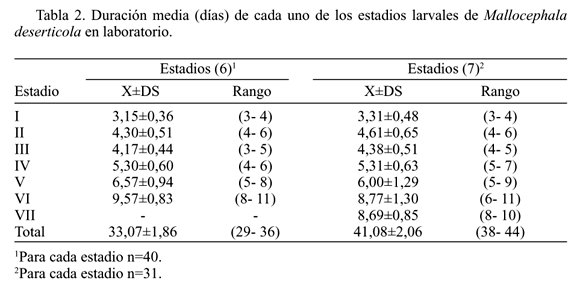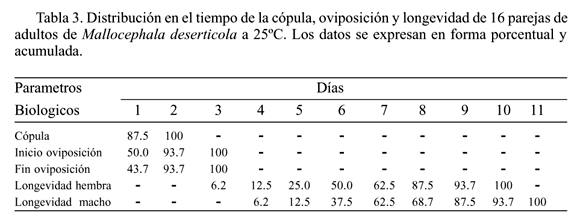The biology of Mallocephala deserticola Berg was studied under laboratory conditions at 25±1ºC, 75±10% RH and 16 hours of light. Females began oviposition in the course of 24 hours from emergence. They laid most of their eggs in the first 36 hours. The eggs were laid in masses and the mean number of eggs deposited/female was 457; 23.1% of the females did not oviposit or laid infertile eggs. Virgin females deposited less eggs, and their preovipositional period was longer than mated ones. The sexual ratio was 1.7 females for each male. The adults, were dimorphic, did not feed and lived 6.5 d. Eggs hatched 6.9 d after oviposition, and their viability was 89.7%. Larval period ranged from 33.1 to 41.1 d according to the number of instars, six or seven, respectively. Mortality did not occur in the 1st larval instar, and in the absence of food, larvae lived 8 d. The larval viability was 94.5%. The prepupal period lasted 2 d and the viability was 98.2%. In the pupal stage sexual dimorphism was evident. Pupal period lasted 11.4 and 8.0 d for males and females, respectively, and the viability was 97.2%. From egg to adult emergence, developmental time ranged from 52.0 to 59.8 d according to the number of larval instars.
Insecta; immature stages; development; behavior; reproduction




